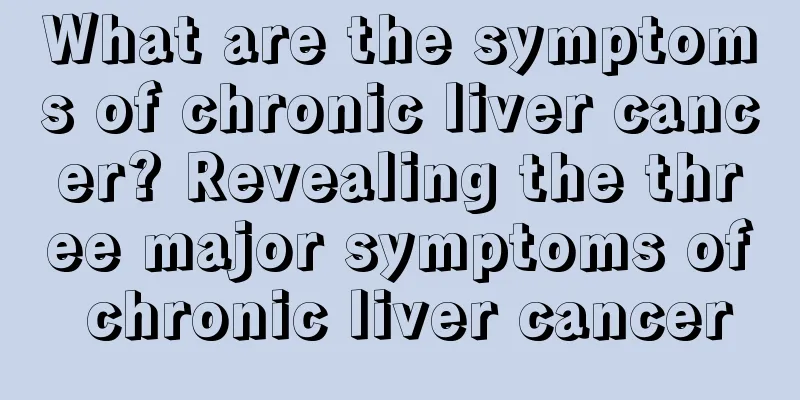What are the symptoms of a gastrointestinal infection?

|
Gastrointestinal infection is a relatively common condition in life. When gastrointestinal infection occurs, patients will also experience obvious symptoms, such as diarrhea, vomiting, abdominal cramps, nausea, etc. Therefore, after the patient has such symptoms, they should seek medical treatment in time to avoid worsening of the disease and leading to physical collapse, which is a great threat to health. What are the symptoms of gastrointestinal infection? 1. What are the symptoms of gastrointestinal infection? Generally, the onset is acute, occurring several hours to 24 hours after ingestion of contaminated food. Symptoms vary in severity, including discomfort and pain in the upper and middle abdomen, and even severe abdominal cramps, anorexia, nausea, and vomiting. Because it is often accompanied by enteritis, there is diarrhea and watery stools. In severe cases, there may be symptoms such as fever, vomiting and (or) bloody stools, dehydration, shock and acidosis. Acute simple gastritis caused by drinking, irritating food and drugs often presents with symptoms of indigestion such as upper abdominal distension and discomfort, pain, loss of appetite, nausea, vomiting, etc. The symptoms vary in severity. Those accompanied by enteritis may have fever, colic in the lower and middle abdomen, diarrhea, etc. Physical examination shows tenderness in the upper abdomen or around the umbilicus, and hyperactive bowel sounds. 2. What is gastrointestinal infection? Gastrointestinal infections are usually caused by microbial infections, but can also be caused by chemical poisons or drugs. Typical clinical manifestations are diarrhea, nausea, vomiting and abdominal pain. In healthy adults, gastroenteritis usually causes only discomfort and inconvenience without causing serious consequences, but in seriously ill, debilitated, young or elderly patients it can lead to life-threatening dehydration and electrolyte imbalances. 3. Causes of gastrointestinal infection Infectious gastroenteritis can be caused by infection with viruses, bacteria, or parasites. Toxins and drugs can cause chemical gastroenteritis. Viral infection is the most common cause of gastroenteritis. There are many viruses that can cause gastroenteritis, the most common of which is rotavirus, followed by Norwalk virus, astrovirus and enteric adenovirus. |
<<: What are the obvious symptoms of spleen and stomach dampness and coldness
>>: What are the manifestations and examination methods of ureteral stenosis?
Recommend
Will endometrial cancer be passed on to the next generation?
The emergence of cancer is still a mystery that h...
What are the advantages of autologous stem cell transplantation for breast augmentation
A pair of charming and firm breasts is what all w...
Why does my face turn red after eating?
Blushing after a meal is generally a symptom of y...
How to prevent gout
Gout is a common clinical disease. Many reasons m...
Why does Bigu cause bad breath
There are many people around us who carry out a f...
Is musk poisonous?
In daily life, musk is often used as a medicinal ...
Early symptoms of uremia, early detection and early treatment
Uremia is a serious disease that occurs after ren...
How to remove old red wine stains
The longer the red wine stains are, the more trou...
What color looks good on people with dark skin
Now that school has started, we all need military...
How to use tomatoes to remove body odor
Tomatoes are a very common vegetable. The lycopen...
The nemesis of nasopharyngeal cancer patients
The nemesis of nasopharyngeal cancer patients: Cl...
What are the nursing methods for tongue cancer
Now, with the development of various media, peopl...
How much does testicular cancer cost?
How much does testicular cancer cost? Anyone suff...
Intestinal cancer usually has three pains in the early stage
In the early stages of colorectal cancer, symptom...
What is the ratio of honey to water
Many people don't pay much attention to makin...









